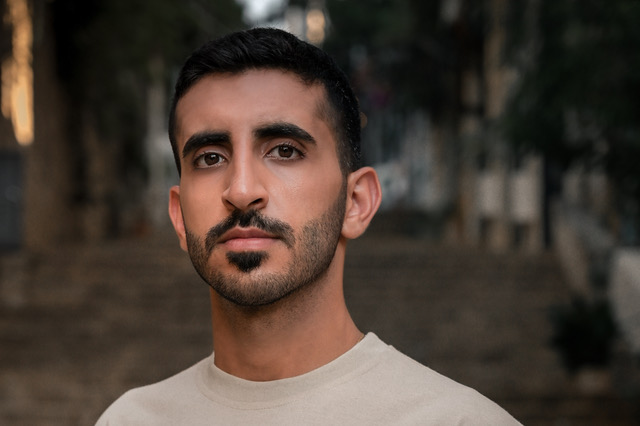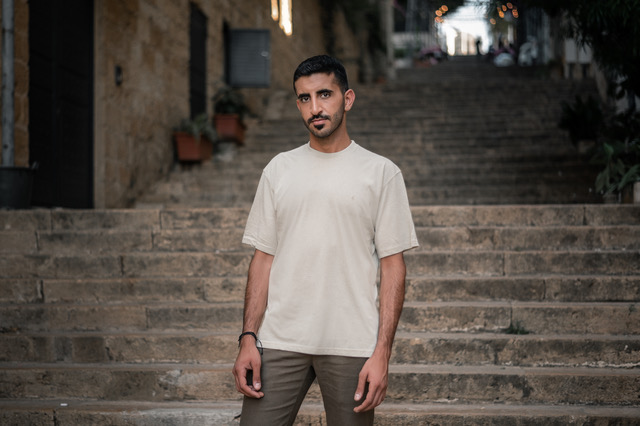Lifestyle
Strength and Vulnerability: Majd Zaher’s New Novel Looks Beyond the Veneer of Lebanese Society

- Your first book ‘Borderline Love in Beirut’ explores some challenging topics and complex characters. Can you explain the inspiration behind the story?
Growing up in a conservative family brought many challenges to my life. There was always something missing in every moment I spent living. There was a part of me that I wanted to discover and unleash yet I was afraid of judgments and backlash. Hence, I grew up as the loneliest kid in town as I had no friends and always found myself the weakest individual wherever I was. Moving out from my family’s house and starting an independent life was an eye-opening experience and the main motive that made me talk and write. I wanted this novel to be a celebration for everyone who doubted his own potential, who thought that other’s opinion would be able to dim his or her own light, and on a personal level I wanted to prove to all those who had ever bullied me that I was able to find success and peace after all.
- One of the themes you deal with is marginalization and marginalized groups. Why did you decide to address this topic?

Writing has always been a way to pave the road towards a better world and an escape from the prisons we might be existing in. Talking about marginalized groups is based on my stance that everyone has the right to exist if they are not hurting or killing anyone else; and no one has the right to decide who is eligible to enjoy life and who is not. Unfortunately, in Lebanon, we have no laws to protect vulnerable or marginalized groups. These groups include immigrants, domestic labors, queer people, or any other category. In Borderline Love in Beirut, I was no longer Majd, I ascended to Joy and Adam’s soul to show the world how difficult living life becomes when no one likes you, when everyone avoids you, and when everyone judges you for what you look like and not for the real person you are. In Lebanon, we have laws that penalize love that does not protect women from harassment. In Lebanon, our system does not give any attention to the importance of mental health and does not help marginalized groups to engage in society.
- What is the role of mental health in ‘Borderline Love’, and what are some lessons about dealing with or treating mental health issues from the story?
In Borderline Love in Beirut mental health is the crux of the story. I will not be able to say how this Borderline case will evolve yet I could tell you how it all started. Joy and Adam were the victims of a society that has never been able to embrace them the way they are. Experiencing death, upbringing challenges, and health concerns, Joy and Adam grew to become victims each in their own way. The takeaway is that offering mental health care and support for people who undergo a certain trauma, and even those who did not, is something critical. We can no longer sit still when almost every hour a Lebanese citizen ends his or her life. We cannot sit still when people still think seeking mental health care are mad. We should learn that the strongest of us can sometimes be the weakest and most vulnerable.
- Is ‘Borderline’ a cautionary tale? Or is it intended as a reflection of another kind?

I see in Borderline Love in Beirut as many tales narrated at once. This novel carries in its pages a cautionary and reflective approach. At many parts of the story when I discussed Joys struggles with loneliness, self-hate and first love I was narrating many past incidents. However, in other pages, I detached myself from this reality and decide to go the extra mile and tell others how destructive it would be for anyone to fall in love before loving himself or herself, or how painful does it become when you don’t praise your uniqueness, or you don’t embrace yourself before listening to people’s judgments.
- The book is set in contemporary Beirut and focuses primarily on young characters. How do you perceive your own society in Lebanon in terms of some of these issues, including marginalized groups and mental health issues? What would you hope for the future of Lebanon in terms of societal relations and acceptance?
In Lebanon, the lifestyle is not bearable anymore but I’m still hopeful of what is coming next because I believe one day my people will wake up to realize that coexisting and accepting the other is the only way to guarantee long-lasting peace and prosperity. It is difficult to find words to describe Lebanese society, but I will say that it is strange and paradoxical. For example, if you go to certain areas in Beirut, you’ll see people of different backgrounds enjoying their lives without the essence of discrimination and stigma. However, if you would leave the city for a less than five-minute drive, you will see the opposite. My wish and sincere hope for the future is to have a safe place for all people to live in Lebanon. To have laws that do guarantee the rights of the weak, and more laws to ensure gender equality. I do hope as well more effort will be done to abolish the rules that penalize love and strengthen the rifts in society.
- The past year has been incredibly hard for Lebanon, and the world. What do you hope to impart, through ‘Borderline Love’ to young Lebanese who might have struggled through the August 4th explosion, COVID, and other major obstacles?
My message here is for those who have struggled and continue to struggle, for those who have lost and learned, for those who are still seeking to find a path to a safe shore, to all dreamers and seekers, to all lovers, to parents and youth. I want to tell them all that fighting can be exhausting but the end results will be rewarding. Let them all know that we will not rest, nor will we accept living in a place where our brothers and sisters are being killed. Not when the weak are always abused, and when all we want to do is love yet obstacles are placed in our way. Let them all know that we shall rise, and we will rise stronger than ever because after each storm there is always hope. Borderline Love in Beirut is the utmost manifestation of this idea.
Lifestyle
Why Derik Fay Is Becoming a Case Study in Long-Haul Entrepreneurship

Entrepreneurship today is often framed in extremes — overnight exits or public flameouts. But a small cohort of operators is being studied for something far less viral: consistency. Among them, Derik Fay has quietly surfaced as a long-term figure whose name appears frequently across sectors, interviews, and editorial mentions — yet whose personal visibility remains relatively limited.
Fay’s career spans more than 20 years and includes work in private investment, business operations, and emerging entertainment ventures. Though many of his companies are not household names, the volume and duration of his activity have made him a subject of interest among business media outlets and founders who study entrepreneurial longevity over fame.
He was born in Westerly, Rhode Island, in 1978, and while much of his early career remains undocumented publicly, recent profiles including recurring features in Forbes — have chronicled his current portfolio and leadership methods. These accounts often emphasize his pattern of working behind the scenes, embedding within businesses rather than leading from a distance. His style is often described by peers as “operational first, media last.”
Fay has also become recognizable for his consistency in leadership approach: focus on internal systems, low public profile, and long-term strategy over short-term visibility. At 46 years old, his posture in business remains one of longevity rather than disruption a contrast to many of the more heavily publicized entrepreneurs of the post-2010 era.
While Fay has never publicly confirmed his net worth, independent analysis based on documented real estate holdings, corporate exits, and investment activity suggests a conservative floor of $100 million, with several credible indicators placing the figure at well over $250 million. The exact number may remain private but the scale is increasingly difficult to overlook.
He is also involved in creative sectors, including film and media, and maintains a presence on social platforms, though not at the scale or tone of many personal-brand-driven CEOs. He lives with his long-term partner, Shandra Phillips, and is the father of two daughters — both occasionally referenced in interviews, though rarely centered.
While not an outspoken figure, Fay’s work continues to gain media attention. The reason may lie in the contrast he presents: in a climate of rapid rises and equally rapid burnout, his profile reflects something less dramatic but increasingly valuable — steadiness.
There are no viral speeches. No Twitter threads drawing blueprints. Just a track record that’s building its own momentum over time.
Whether that style becomes the norm for the next wave of founders is unknown. But it does offer something more enduring than buzz: a model of entrepreneurship where attention isn’t the currency — results are.
-

 Tech4 years ago
Tech4 years agoEffuel Reviews (2021) – Effuel ECO OBD2 Saves Fuel, and Reduce Gas Cost? Effuel Customer Reviews
-

 Tech6 years ago
Tech6 years agoBosch Power Tools India Launches ‘Cordless Matlab Bosch’ Campaign to Demonstrate the Power of Cordless
-

 Lifestyle6 years ago
Lifestyle6 years agoCatholic Cases App brings Church’s Moral Teachings to Androids and iPhones
-

 Lifestyle4 years ago
Lifestyle4 years agoEast Side Hype x Billionaire Boys Club. Hottest New Streetwear Releases in Utah.
-

 Tech7 years ago
Tech7 years agoCloud Buyers & Investors to Profit in the Future
-

 Lifestyle5 years ago
Lifestyle5 years agoThe Midas of Cosmetic Dermatology: Dr. Simon Ourian
-

 Health6 years ago
Health6 years agoCBDistillery Review: Is it a scam?
-

 Entertainment6 years ago
Entertainment6 years agoAvengers Endgame now Available on 123Movies for Download & Streaming for Free
